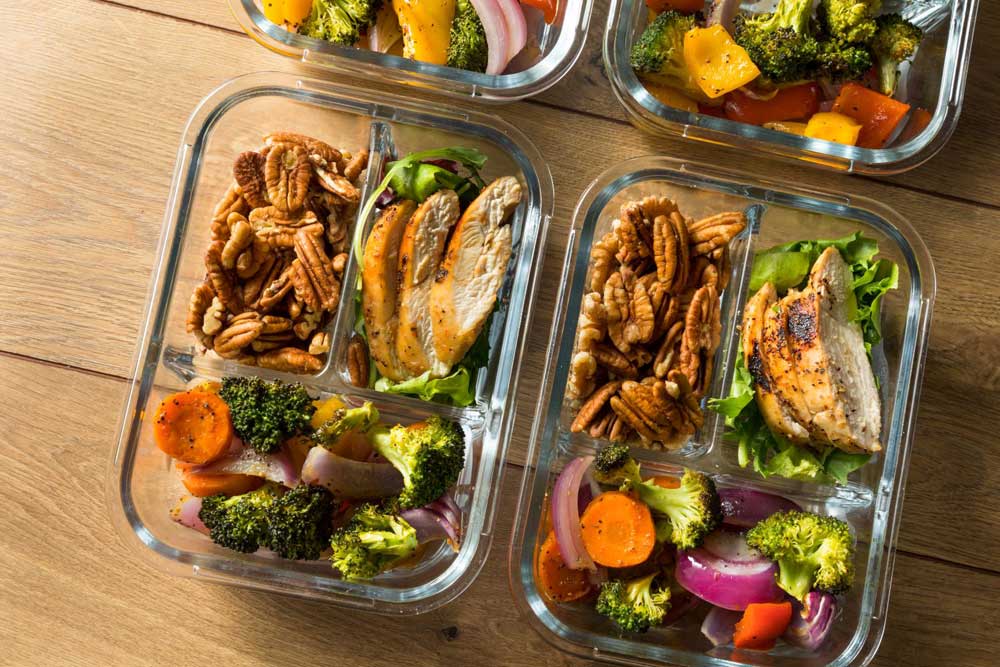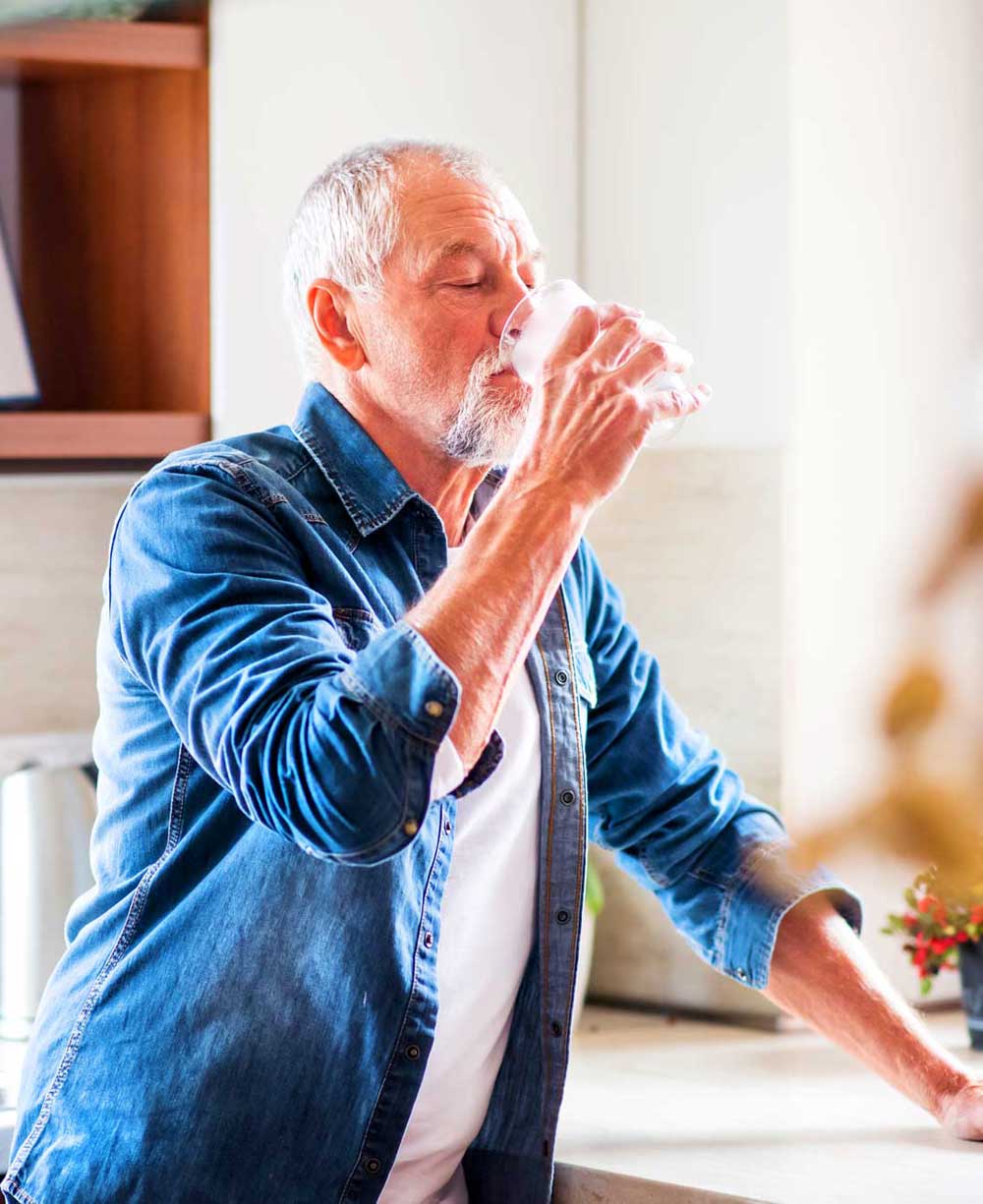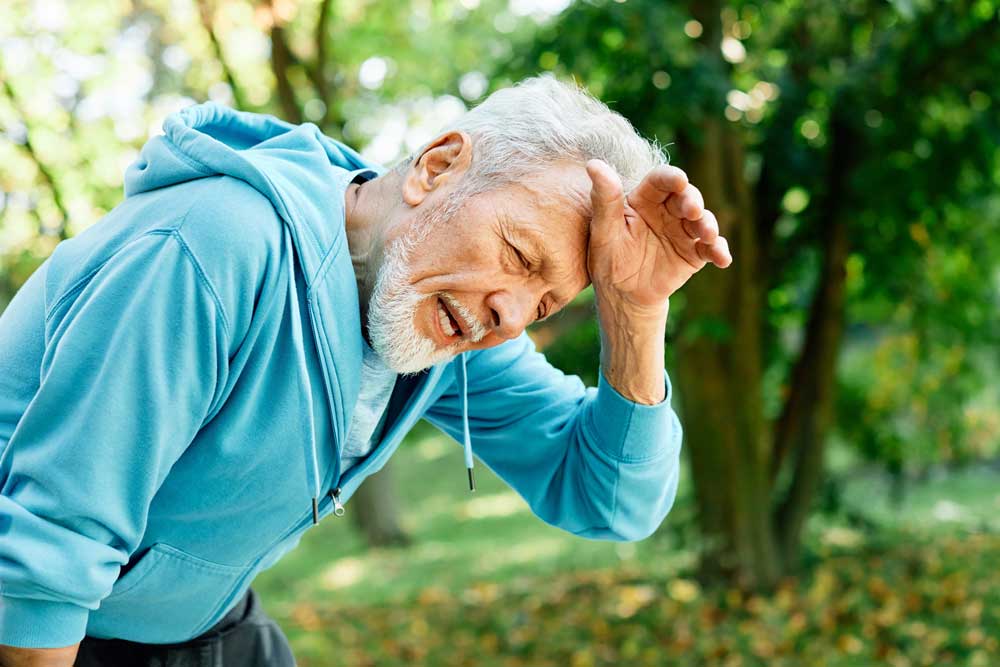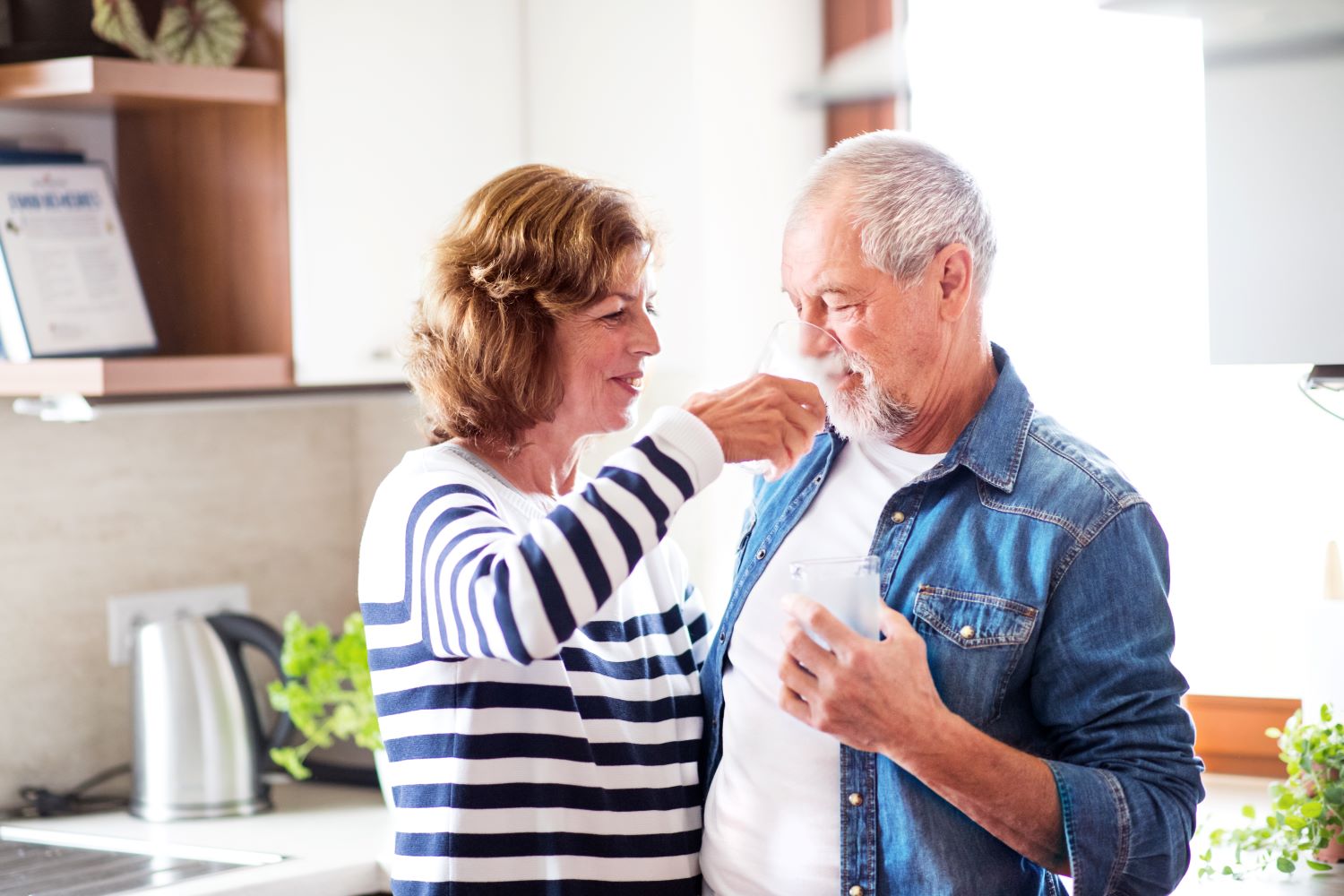Nutrition & Hydration
Adequate nutrition and hydration is central to a person’s health and wellbeing.
Anyone can develop malnutrition if their body does not receive the correct balance of nutrients over a period of time. The older and frailer people are the higher the incidence of malnutrition.
The Association of UK Dieticians have reported that approximately 3 million people in the UK are malnourished or are at risk:
- 93% of these people live in their own homes
- 5% in care homes
- 2% are in hospitals
Common Issues & Ways To Improve Nutrition & Hydration
Below we have listed 8 common issues. Please click each tab to view the issues and suggestions:
Medication Side Effects
Some medications affect the absorption of nutrients or may cause nausea, vomiting or diarrhoea.
Suggestions:
If you are experiencing any of these symptoms speak to your GP and or your pharmacist for advice.
Difficulty Eating Or Swallowing
Older people may have difficulty eating and swallowing or the risk of choking may create fear.
Suggestions:
Check for pain in the mouth, check dentures are fitting creating and not rubbing, encourage and remind about the importance of oral hygiene.
Speak to your GP if you have difficulty eating or swallowing – you may require further assessments to be carried out to identify and ultimately treat the cause.
Ensure all foods and drinks are of the correct texture and consistency when swallowing difficulties arise. Always follow the advice of specialists.
Loss of Appetite
With increased age, sensitivity to taste decreases therefore the pleasure of eating reduces.
Suggestions:
Identify current likes and dislikes and meals / drinks of choice. Ensure when shopping these foods and drinks are bought and where possible encourage the person to go shopping with you.
Provide a variety of meals or snacks which look nice. If meals are visually appealing they are more appetising.
Always serve foods and drinks at the desired temperature unless it is unsafe to do so. For example people like their cup of tea / coffee at different temperatures.
Loneliness Or Isolation
Desire to eat may reduce due to loneliness or isolation.
Suggestions:
Eating should be a social activity and when people live or eat alone this is often difficult to achieve.
Consider planning to eat with your loved one 1 to 2 nights per week either at home, or going out for a meal.
If this is not achievable, try playing music or having another person present at meal times. This is something a carer can assist with.
Meal Preparation
Physical conditions such as Rheumatoid Arthritis can cause difficulty with meal preparation, serving and eating / drinking.
Suggestions:
Assist people with meal preparation where necessary without taking away their independence; try opening containers, cartons, tins and place the contents in easily accessible bowls/ containers.
Consider kettle holders to assist with pouring of hot water more safely, electronic gadgets such as tin openers.
Try adapted cutlery, coloured plates for people who are partially sighted so they can see their food on the plate more easily, plate guards to help prevent food falling off the side of the plate, non-slip mats to stop plates moving on trays or other surfaces, beakers / sports bottles to drink out of or receptacles with handles on both sides.
Carers can assist with meal preparation / serving.
Seating & Surroundings
Seating and surroundings can affect eating habits.
Suggestions:
Allow the person to choose where they want to eat. A change of scenery or eating at a table can be beneficial in many ways.
Walking to and from the table daily will help keep joints moving and helps with pressure relief.
If it is not possible for a person to sit at a table try lap trays or bedside tables and ensure they have the necessary cutlery, condiments, serviette / napkin and fresh drink available.
Eating Habits With Health Conditions
Eating habits may alter with health conditions.
Suggestions:
People with chronic kidney disease may be restricted on their fluid intake so always follow the advice of your specialist.
People with Dementia may forget to eat or not recognise meal times. In this case contact them to remind them to eat, leave snacks ready, try finger food to make it easier for them.
Encourage little and often rather than over-facing people with large sized meals. Increase the calorie content of foods without increasing portion size or change to whole milk rather than skimmed / semi skimmed, full fat butter and cream.
Milk, milk powder, butter, cream and cheese can be added to foods such as mash potato, soups, scrambled egg, beans on toast, omelettes, sauces, milkshakes and smoothies to increase the calorific content. Jam, honey and other condiments added to foods such as porridge, toast and cereals can also help increase the calorific value.
Thirst Reduction & Fear Of Incontinence
Older people are more likely to become dehydrated due to thirst sensation reducing with age or fear of incontinence (especially if there are mobility issues or the person takes diuretics / water tablets).
Suggestions:
Leave glasses or beakers of juice / water around the house to enable the person to drink more easily. Leave a jug of juice at the side of where they sit so they can refill their glass more easily (be careful not to overfill it so they cannot lift it).
Try straws if the person struggles to lift a glass / beaker and always use the person’s favourite mug, glass or beaker.
Leave reminders, have a drink with them when you visit or buy drinks they will enjoy. Encourage a person to drink in a positive way and adopt the little and often approach.
With regards mobility issues, assess whether adaptations such as grab rails would assist with getting onto and off a toilet. If the person will use a commode, strategically place a commode nearer to them than the toilet for periods of frequent urination (first few hours after taking diuretics).
Place a ‘Dehydration urine colour chart’ near the toilet to enable the person to assess levels of dehydration for themselves. This may encourage them to drink more fluids.
Signs & Symptoms
Signs and Symptoms associated with malnutrition and or dehydration:
- Weight loss
- Thirst
- Tiredness / fatigue
- Dizziness
- Muscle wastage / weakness
- Increased falls
- Dry mouth / lips / skin / brittle nails
- Change in mood
- Increased susceptibility to illness / infections or an increased recovery period following illness
- Dark coloured / strong smelling urine, infrequent urination and urinary tract infections are especially common with dehydration
Increased Risk
Dehydration can also increase the risk of:
- Pressure sores & ulcers
- Kidney & gallstones
- Constipation
- Heart disease
- Diabetes
- Reduced cognitive impairment
- Falls
- Skin health
What Else Can I Do To Help?
If you ever suspect malnutrition or dehydration speak to your GP who may refer you to a dietician for specialist advice.
If possible weigh the person deemed at risk on a regular basis and if it is not possible to weigh them, take arm or leg circumference measurements so comparisons can be made. This approach must be person centred though, as regular weighing can create upset and distress for the person concerned.
Clifton Homecare weigh client’s monthly where possible and we use the MUST (Malnutrition Universal Screening) Tool to assess a person’s risk of malnutrition. With consent, the team will liaise with and work in association with health care professionals to try and prevent and reduce the likelihood of malnutrition and dehydration.
You May Also Like
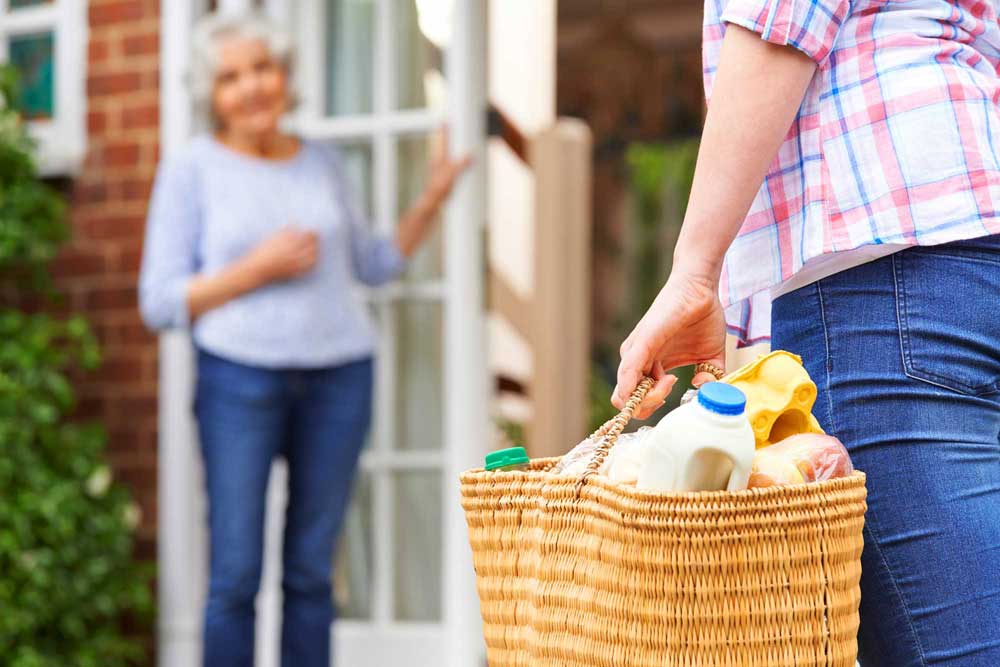
Browse All Services
Discover flexible, adaptable care to clients in & outside of their own home in the community. We can help with many services you may not have considered.
READ MORE
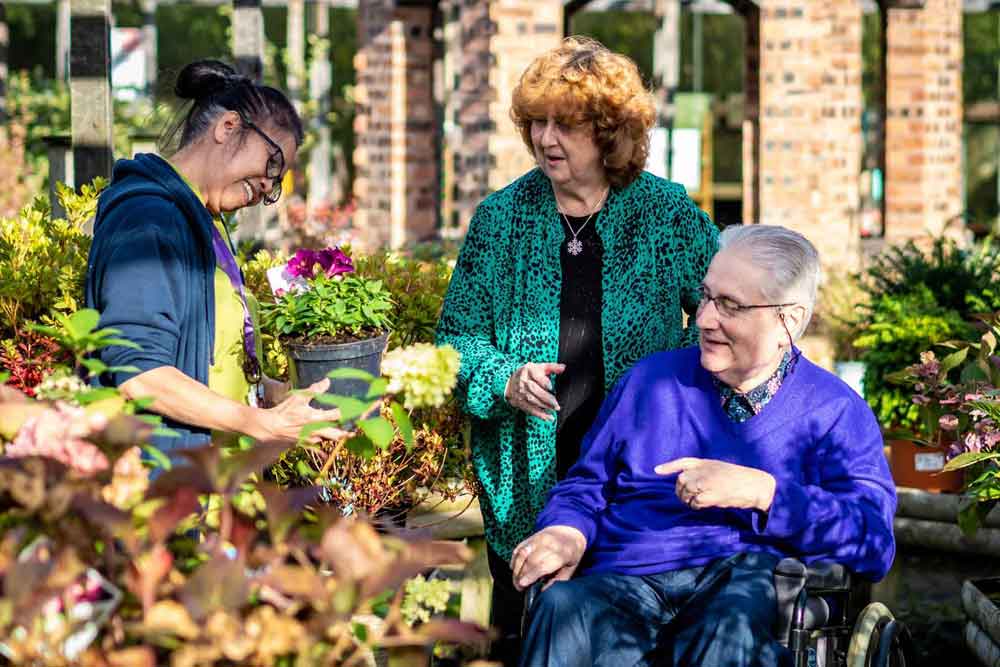
Why Choose Us?
Discover how our values of kinship, family, inclusivity & honesty enable us to provide exceptional tender loving care in your home.
READ MORE
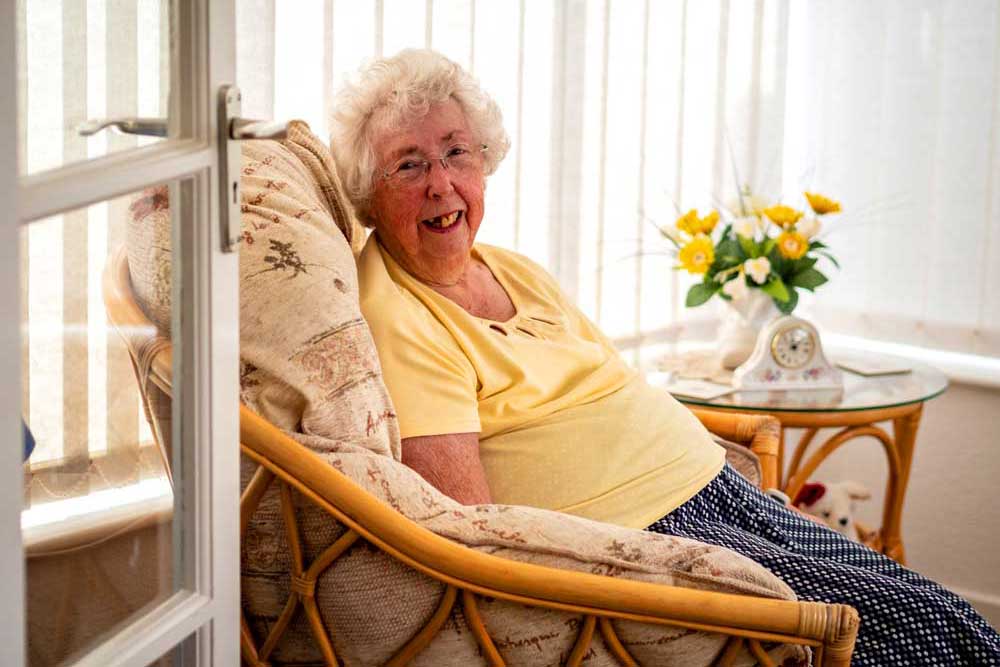
What Our Clients Say
We value the personal connection we have with our clients. Read what they say about us & our support, in their own words.

